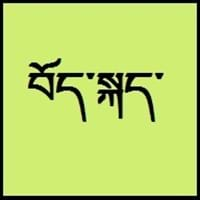Tibetan vs Portuguese Dialects
Dialects
Dialect 1
Central Tibetan
Brazilian Portuguese
Where They Speak
China, India, Nepal
Brazil
How Many People Speak
1,200,000.00
27
204,000,000.00
4
Dialect 2
Khams Tibetan
European Portuguese
Where They Speak
Bhutan, China
Portugal
How Many People Speak
1,400,000.00
23
10,000,000.00
9
Dialect 3
Amdo Tibetan
Daman and Diu Portuguese creole
Where They Speak
China
Daman and Diu
How Many People Speak
1,800,000.00
16
4,000.00
36
Total No. Of Dialects
6
6
26
22
Where they Speak Tibetan and Portuguese Dialects
Tibetan vs Portuguese dialects consists information about where they speak Tibetan and Portuguese dialects.
- Tibetan Dialects:
- Central Tibetan spoken in: China, India, Nepal
- Khams Tibetan spoken in: Bhutan, China
- Amdo Tibetan spoken in: China
- Portuguese Dialects:
- Brazilian Portuguese spoken in: Brazil
- European Portuguese spoken in: Portugal
- Daman and Diu Portuguese creole spoken in: Daman and Diu
How Many People Speak Tibetan and Portuguese Dialects
Dialects are the varieties of a language that is distinguished from each other on basis of phonology, grammar, vocabulary, speaking regions and speaking population. Tibetan vs Portuguese Dialects also tells you about how many people speak Tibetan and Portuguese Dialects.
- Tibetan Dialects:
- Central Tibetan speaking population: 1,200,000.00
- Khams Tibetan speaking population: 1,400,000.00
- Amdo Tibetan speaking population: 1,800,000.00
- Portuguese Dialects:
- Brazilian Portuguese speaking population: 204,000,000.00
- European Portuguese speaking population: 10,000,000.00
- Daman and Diu Portuguese creole speaking population: 4,000.00
More on Tibetan and Portuguese Dialects
Explore more on Tibetan and Portuguese dialects to understand them. The Tibetan vs Portuguese dialects include one ‘written’ form and several ‘spoken’ forms. Some language dialects vary most in their phonology, and lesser in vocabulary and pattern. Some languages have dialects while some don't have.





